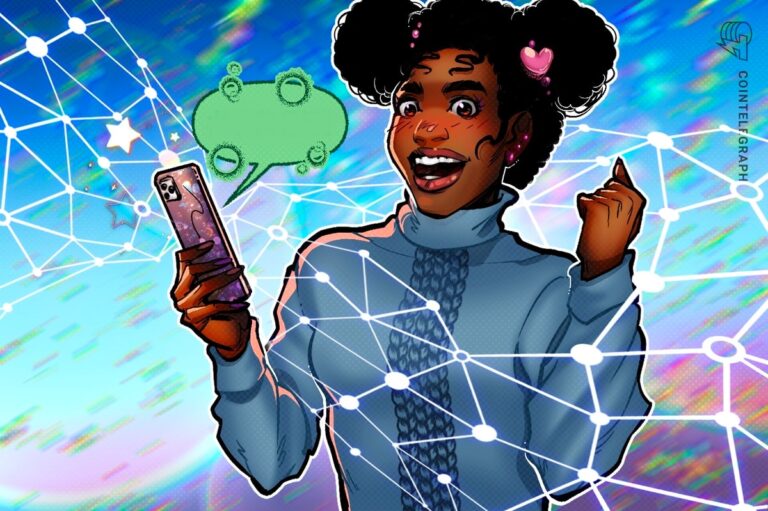
Based on an announcement on June seventh, Grill.chat, a chat app constructed on the Subsocial community, has now applied Ethereum Digital Machine (EVM) pockets compatibility, permitting customers to speak with their Ethereum identities and cryptocurrencies through Polygon can ship to one another.
Subsocial is a polkadot parachain designed for social media functions.
Grill.chat permits customers to take part in 70+ chat rooms principally centered on crypto associated subjects. The event group needs to draw new Web3 tasks to construct their communities on the platform.
Polkadot decrypted chat room on Grill.chat. Supply: Grill.chat
The combination means customers can now join their subsocial wallets to their EVM wallets by signing a transaction that confirms they’re the pockets proprietor. This prevents them from having to personal SUB tokens with a purpose to donate them to different customers and permits them to show their Ethereum identification to customers in chat rooms. Sooner or later, the builders plan to make use of this integration to allow viewing of non-fungible token (NFT) collections for different customers.
Talking to Cointelegraph, Subsocial CEO Zachary Edwards defined that Grill.chat is concentrating on crypto tasks as potential chat room sponsors. At present, many crypto communities are based mostly on Discord servers and Telegram channels. These channels can’t be built-in into the developer’s website, that means customers should load a separate program to hitch or work together with the neighborhood, which Edwards believes creates pointless friction for customers.
In distinction, discussion groups on Grill.chat could be built-in right into a improvement group’s website or utility interface. Edwards pointed to the instance of Zeitgeist, a blockchain-based prediction market app. There’s a “chat” icon on the consumer interface that leads on to a Zeitgeist chat room on Grill.chat.
 Zeitgeist UI with the Grill.chat window open. Supply: Zeitgeist
Zeitgeist UI with the Grill.chat window open. Supply: Zeitgeist
Nonetheless, customers of the app had beforehand encountered friction from different sources, Edwards mentioned. Most of the largest crypto tasks happen on EVM-based networks reminiscent of Ethereum, Polygon, and Avalanche. Crypto customers are used to utilizing wallets from these networks and do not essentially need to obtain a brand new pockets to make use of a chat app.
Associated: Decentralized Social Media: The Subsequent Massive Factor in Crypto?
To partially remedy this drawback, the group applied a function that enables customers to create a subsocial pockets immediately from the app’s interface. In addition they paid customers’ fuel charges through a sensible contract that may delegate signing rights for a restricted set of capabilities.
Nonetheless, this nonetheless did not totally remedy the difficulty because the consumer’s Ethereum identification was remoted from their Grill.chat posts. The group applied EVM compatibility to make it simpler for Ethereum customers to modify to the app, Edwards defined.
“The cool factor is that it form of makes use of this off-chain signer know-how, as a result of in the end all of it runs on substrates [Polkadot parachain technology], and EVM wallets aren’t suitable with Substrate,” defined Edwards. “However we are able to nonetheless hyperlink these two accounts so you may chat on the substrate chain, however your EVM account is linked so you may have identification, donations, NFTs and all that stuff.”
Grill.chat is not the one social media app attempting to get crypto tasks to construct communities. OpenChat is a chat app on the web laptop community. The group instructed Cointelegraph that they’re engaged on an identical function to show OpenChat chat rooms on a venture’s website.
Web3 corporations are striving to develop a blockchain-based social media app that may discover mass adoption. On April 26, the Polygon-based Lens community introduced a brand new scaling resolution that it mentioned would allow “prompt posts.” On the identical day, MeWe introduced that it might be shifting its 20 million customers to the Polkadot parachain community Frequency.